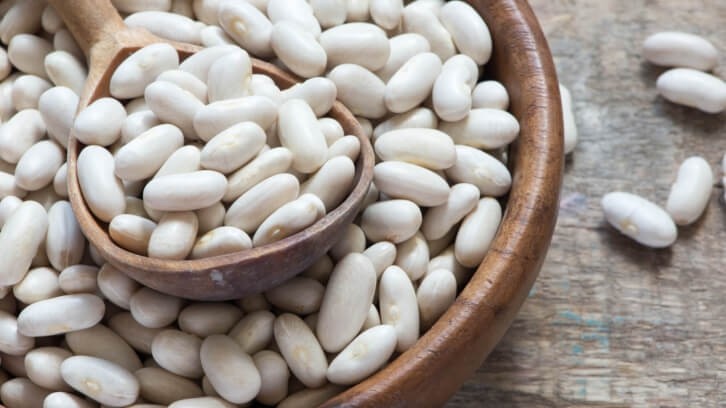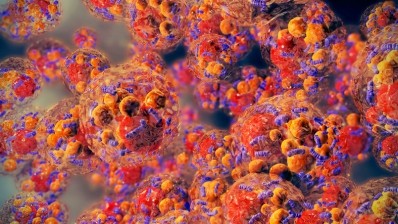White kidney bean extract may promote body weight and fat loss: RCT

Supplementation with the Phase 2-branded white kidney bean extract (WKBE) at daily doses of 3,000 mg or 2,100 mg three times a day during a 12-week calorie restricted diet was also associated with reduced BMI in a dose-dependent manner, compared with the calorie-restricted diet plus a placebo.
“WKBE supplementation resulted in a higher proportion of participants achieving clinically significant weight loss thresholds of 3% and 5% of body weight,” wrote researchers from Increnovo, Iovate Health Sciences International, Analyze and Realize GmbH and InQpharm Consumer Health Ltd.
“Our findings contribute to the growing body of evidence highlighting the use of WKBE supplementation as an adjunctive approach for weight management.”
The new study, published in Science Reports, shines a light on a legacy ingredient that was developed in the late 1990s and first came to market in 2001: Phase 2, which is a proprietary extract of Phaseolus vulgaris, the white kidney bean.
Mode of action
Increnovo’s Dr. Ralf Jäger, lead author on the new paper, explained that starches need to first be broken down by digestive enzymes in order to be absorbed, and it is the alpha-amylase enzyme that first hydrolyzes the starch into maltose. This is subsequently broken down in the small intestine and absorbed as glucose.
However, WKBE inhibits this alpha‐amylase activity, thereby stopping the breakdown of dietary starch into simple sugars, and by inhibiting starch (carbohydrate) metabolism, this can help decrease caloric absorption.
“Our randomized, double-blind, placebo-controlled, multiple-dose, two-center, parallel study in overweight and obese individuals showed that Phase 2 significantly reduced body weight and fat mass,” Dr. Jäger said. “Our results confirm the outcome of a meta-analysis of 11 Phase 2 studies on weight management.”
Study details
Dr. Jäger and his co-workers recruited 81 people to participate in their trial. The volunteers, who were all either overweight or moderately obese were assigned to a calorie-restricted diet (20% reduction in individual energy requirements based on BMI and activity levels) and randomly assigned to receive either placebo or one of two doses (1,000 mg or 700 mg) of Phase 2. The participants took the supplements three times a day 30 minutes before their main meals, meaning the daily dose was either 3,000 mg or 2,100 mg.
Results showed that body weight was reduced by an average of 4.48 kg in the high-dose group and 3.18 kg in the low-dose group, compared to 0.54 kg in the placebo group.
For BMI, the high-dose WKBE group experienced a 1.56 kg/m2 reduction, compared to 0.21 kg/m2 in the placebo group.
The high-dose group also experienced significant reductions in fat free mass after 12 weeks (1.42 kg reduction), compared to a slight increase in the placebo group (0.12 kg increase).
“The identification of responders who achieved at least 3% and 5% body weight loss in our study may hold significant clinical implications,” Dr. Jäger and his co-workers wrote. “At 12 weeks, a significantly higher proportion of participants in both the WKBE HIGH and WKBE LOW groups achieved these weight loss milestones compared to the placebo group.”
The researchers noted that a modest 3% weight loss was achieved in the high-dose group after only four weeks, and this level is linked to improved metabolic parameters such as blood pressure, blood glucose and lipid profiles. Even greater benefits are linked to a 5% weight loss, they added.
“Thus, the increased proportion of responders achieving these weight loss thresholds, especially with WKBE HIGH at 12 weeks, suggests that WKBE supplementation may offer a promising approach to aid in weight management and improve overall health outcomes in overweight individuals,” the study concluded. “However, further research is needed to explore the long-term effects and sustainability of these weight loss outcomes.”
Funding
The study was supported financially by InQpharm Consumer Health Ltd (UK), Perrigo CSCI (Belgium), Pharmachem (USA) and Fytexia SAS (France). Pharmachem supplied the Phase 2 ingredient.
Source: Science Reports
2024, 14:12685, doi: 10.1038/s41598-024-63443-8
“Proprietary alpha-amylase inhibitor formulation from white kidney bean (Phaseolus vulgaris L.) promotes weight and fat loss: a 12-week, double-blind, placebo-controlled, randomized trial.”
Authors: Ralph Jäger et al.














